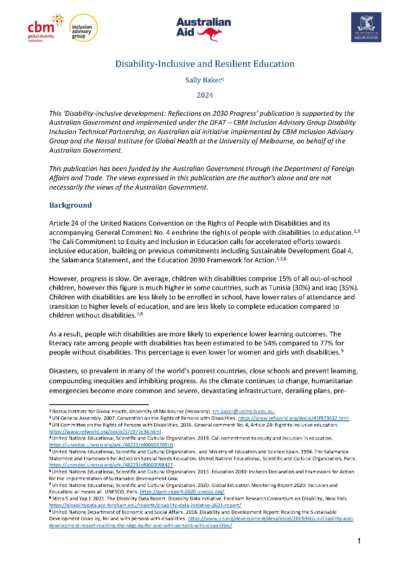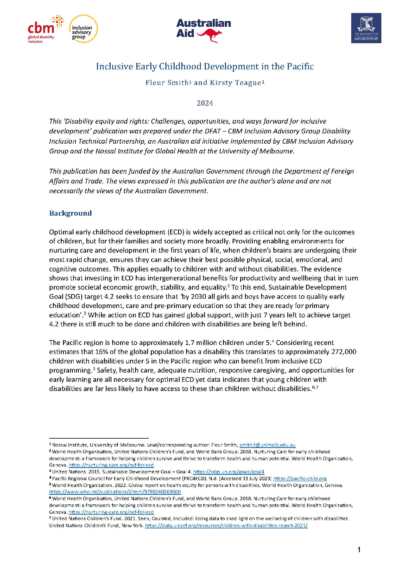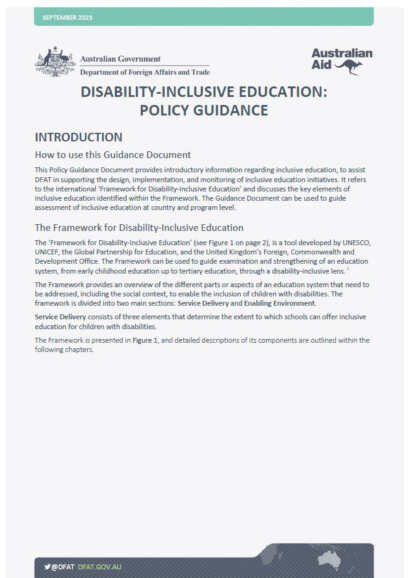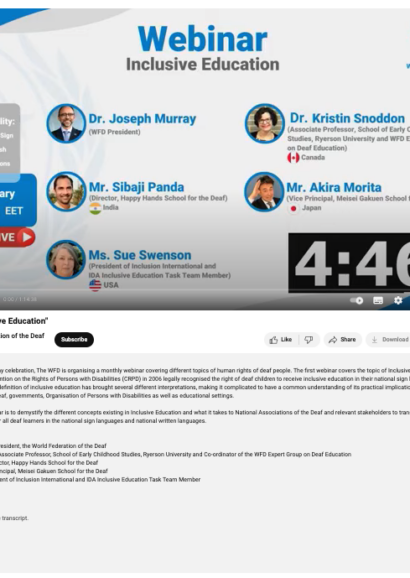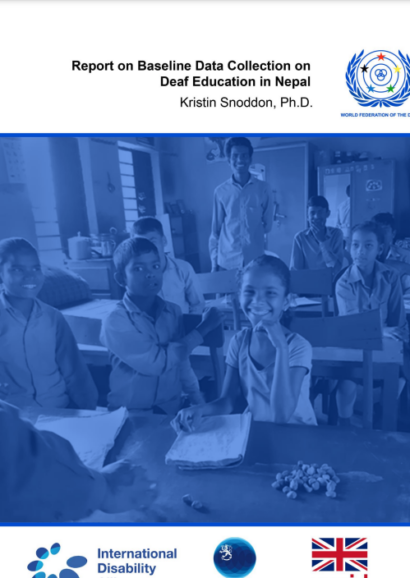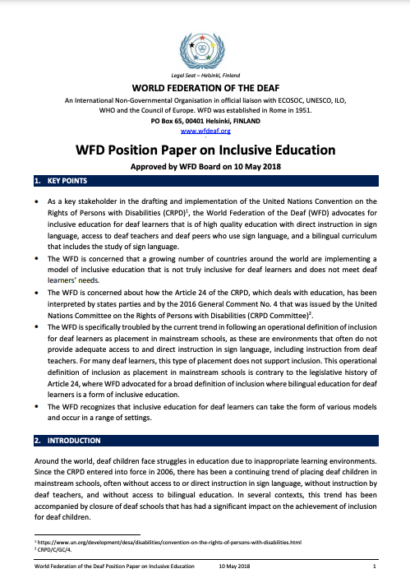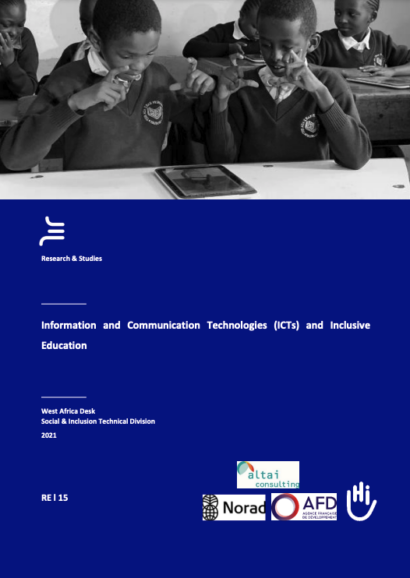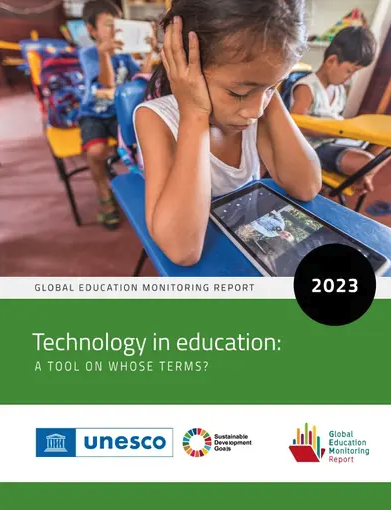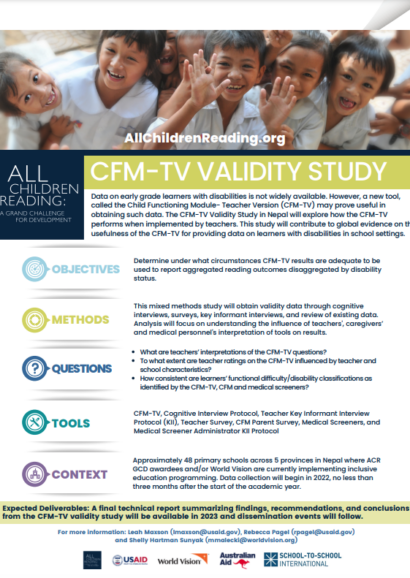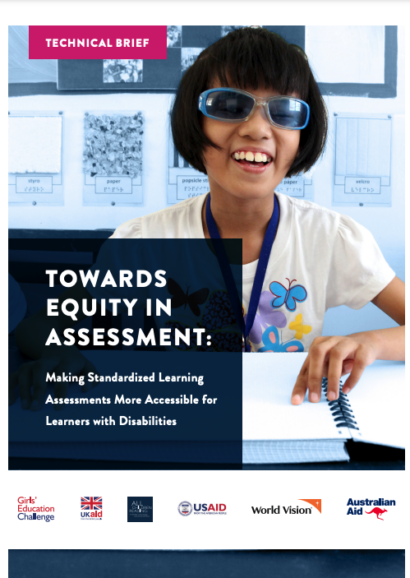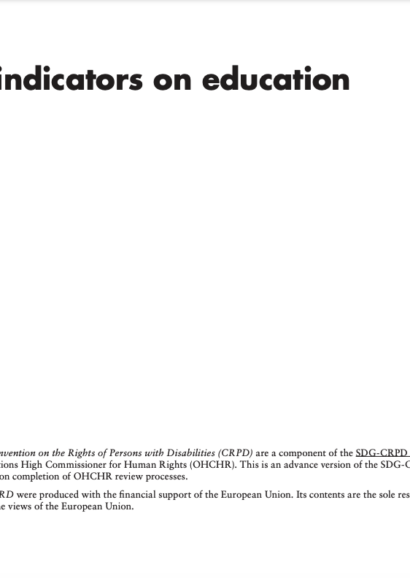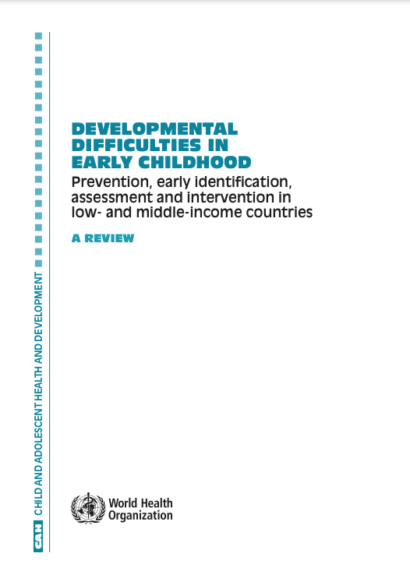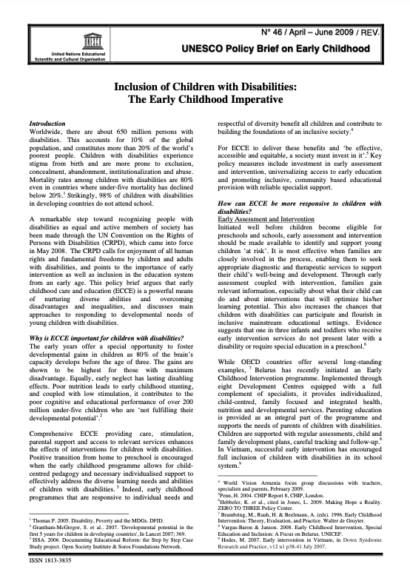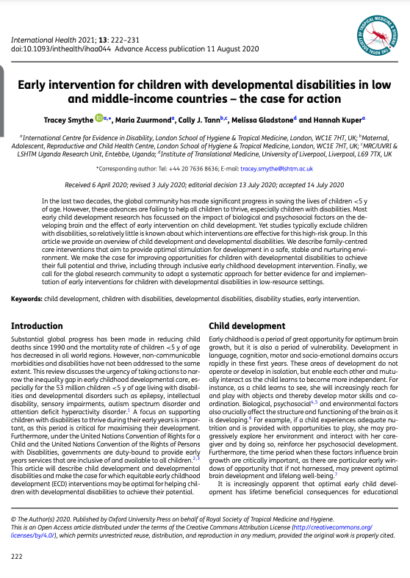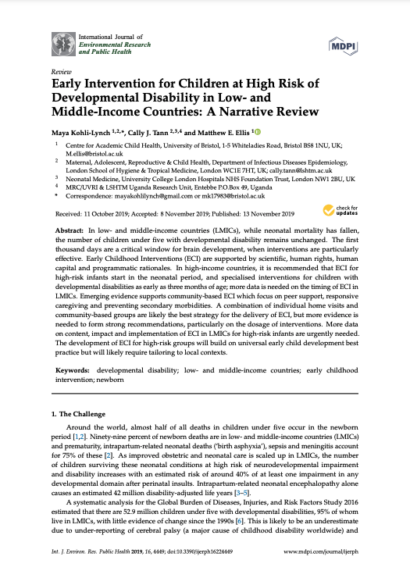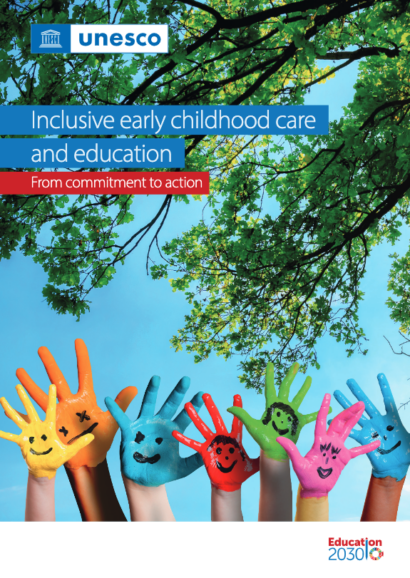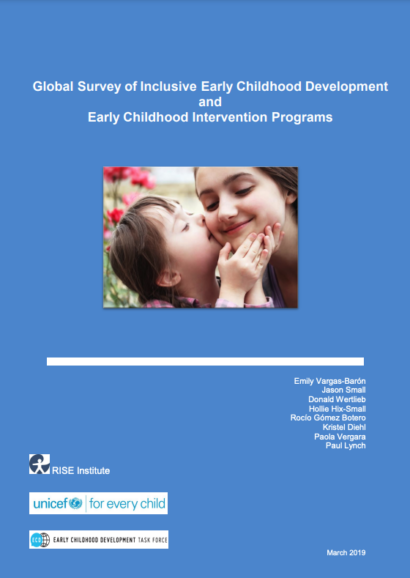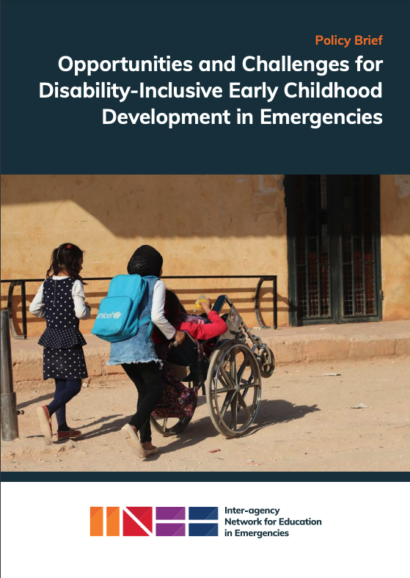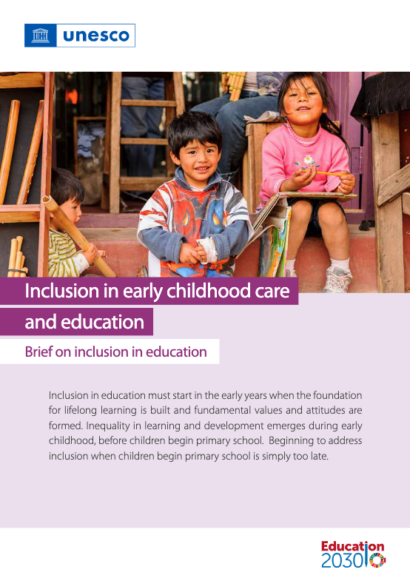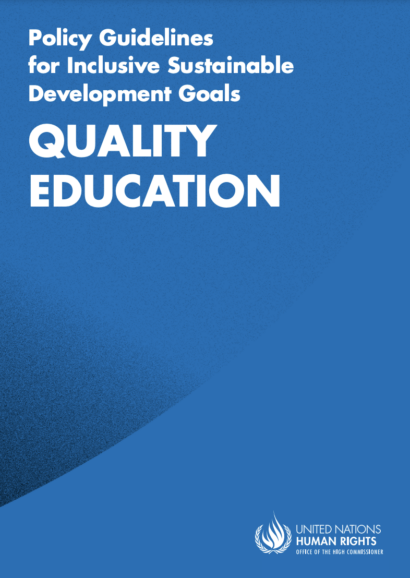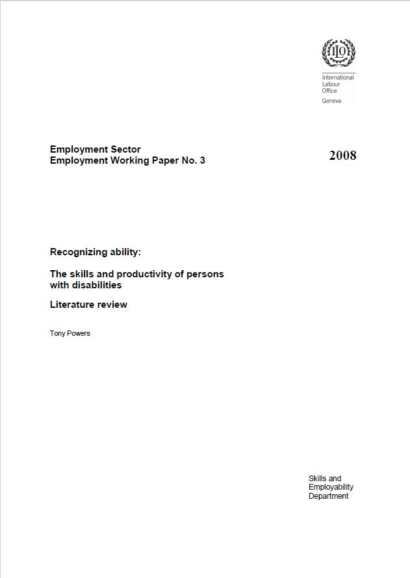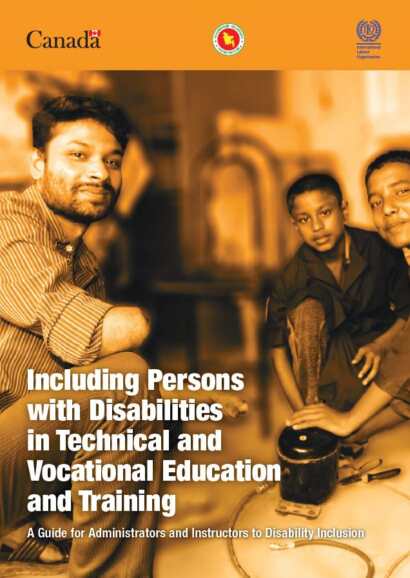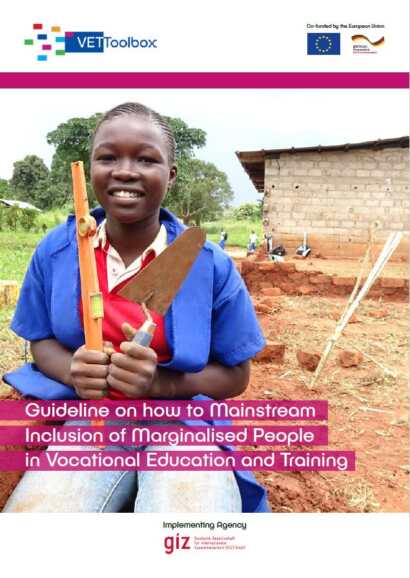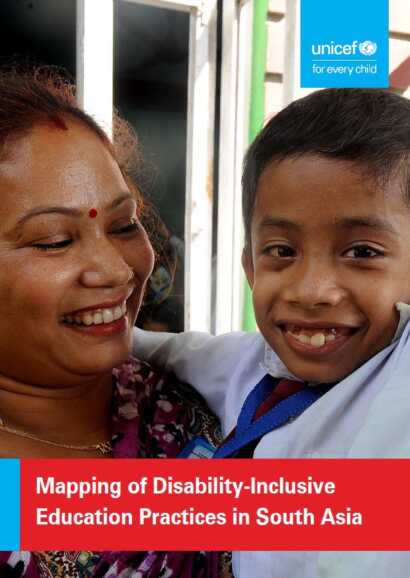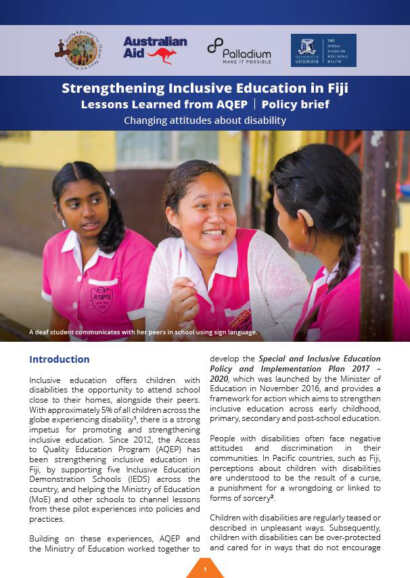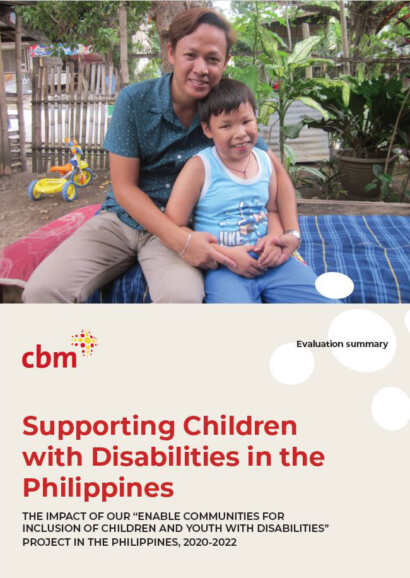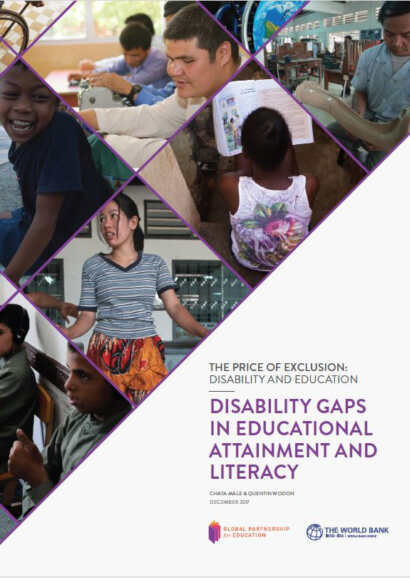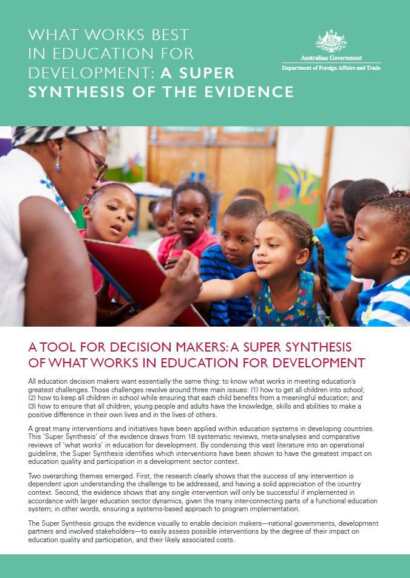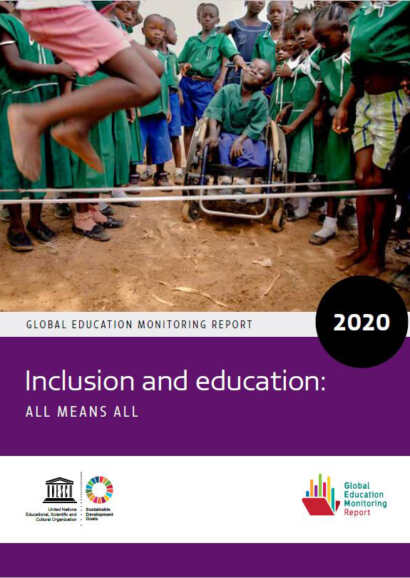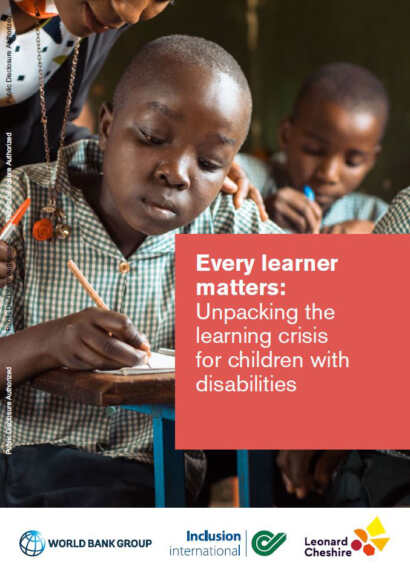CBM-Nossal (2024) Disability Equity and Rights Essay: Disability-Inclusive and Resilient Education
This ‘Disability equity and rights: Challenges, opportunities, and ways forward for inclusive development’ publication was prepared under the DFAT – CBM Inclusion Advisory Group Disability Inclusion Technical Partnership, an Australian aid initiative implemented by CBM Inclusion Advisory Group and the Nossal Institute for Global Health at the University of Melbourne.
CBM-Nossal (2024) Disability Equity and Rights Essay: Inclusive Early Childhood Development in the Pacific
This ‘Disability equity and rights: Challenges, opportunities, and ways forward for inclusive development’ publication was prepared under the DFAT – CBM Inclusion Advisory Group Disability Inclusion Technical Partnership, an Australian aid initiative implemented by CBM Inclusion Advisory Group and the Nossal Institute for Global Health at the University of Melbourne.
DFAT (2023) Disability-Inclusive Education: Policy Guidance
This Policy Guidance Document provides introductory information regarding inclusive education, to assist DFAT in supporting the design, implementation, and monitoring of inclusive education initiatives.
WFP (2021) Webinar “Inclusive Education”
The aim of this webinar is to demystify the different concepts existing in Inclusive Education and what it takes to National Associations of the Deaf and relevant stakeholders to transition to quality and inclusive education for all deaf learners in the national sign languages and national written languages.
WFD (2019) Report on Baseline Data Collection on Deaf Education in Nepal
The report shares findings from a consultancy project for the WFD regarding inclusive and equitable quality education through the medium of sign language for deaf learners in Nepal.
WFP (2018) WFD Position Paper on Inclusive Education
WFD advocates for inclusive education for deaf learners that is of high quality education with direct instruction in sign language, access to deaf teachers and deaf peers who use sign language, and a bilingual curriculum that includes the study of sign language.
Humanity & Inclusion (2021) Information and Communication Technologies (ICTs) and Inclusive Education
Conducted a study to: i) identify existing ICTs that can support the educational inclusion of children with disabilities; ii) identify the challenges to the implementation of these ICTs.
UNESCO (2023) Technology in education: A tool on whose terms?
Chapter 2 of this report focuses on inclusion in education and assistive technology.
All Children Reading (2023) Child Functioning Module-Teacher Version (CFM-TV) Validity Study
The CFM-TV Validity Study in Nepal will explore how the CFM-TV performs when implemented by teachers.
Girls’ Education Challenge (2023) Towards Equity in Assessment: Making Standardized Learning Assessments more accessible for Learners with Disabilities
The purpose of this brief is to share lessons that implementers, assessment designers and researchers have learned by including learners with disabilities in standardized summative learning assessments.
USAID (2019)Universal Design for Learning to Help All Children Read
This toolkit is aligned with the CRPD and supporting inclusive education as the most appropriate educational setting for students with disabilities.
OHCHR (2020) Article 24: Illustrative indicators on education
The right to education applies to all children. Article 24 describes what is needed to ensure that children with disabilities are able to realize this right.
WHO (2012) Developmental difficulties in early childhood: prevention, early identification, assessment and intervention in low and middle income countries: a review
This review compiles the wealth of available information in regards to developmental difficulties in resource poor settings and summarises them in a systematic framework to be used by health care providers, policy and program staff.
UNESCO (2009) Inclusion of children with disabilities: the early childhood imperative
This two page policy brief discusses early childhood development in general, as well as the main approaches to responding to the developmental needs of young children with disabilities through early assessment and intervention.
Smythe. T., Zuurmond, M., Tann, C.J., Gladstone, M., & Kuper, H. (2021) Early intervention for children with developmental disabilities in low and middle-income countries – the case for action
This open-access, peer reviewed, article makes the case for improving opportunities for children with developmental disabilities to achieve their full potential and thrive, including through inclusive early childhood development intervention.
Kohli-Lynch, M., Tann, C.J., & Ellis, M.E. (2019) Early intervention for children at high risk of developmental disability in low- and middle-income countries: A narrative review
This open-access, peer-reviewed, paper presents the evidence base for investment in early childhood intervention services, including from human rights and human capital development perspectives, focusing on children at risk of developmental disability.
UNESCO (2021) Inclusive early childhood care and education: from commitment to action
This publication presents and discusses both qualitative and quantitative data for a renewed, action-oriented global commitment to universal and inclusive early childhood services.
RISE Institute, UNICEF, & ECDtf (2019) Global survey of inclusive early childhood development and early intervention
This report documents the results of a global survey that aimed to map implementation of inclusive early childhood development (IECD) and early childhood intervention (ECI) programs and related activities.
INEE (2022) Opportunities and Challenges for Disability-Inclusive Early Childhood Development in Emergencies
This policy brief presents the current state of disability-inclusive Early Childhood Development in Emergencies programming.
UNESCO (2021) Inclusion in early childhood care and education: brief on inclusion in education
This brief introduces the importance of inclusion within early childhood care and education, identifying key challenges and introducing key policy recommendations for governments.
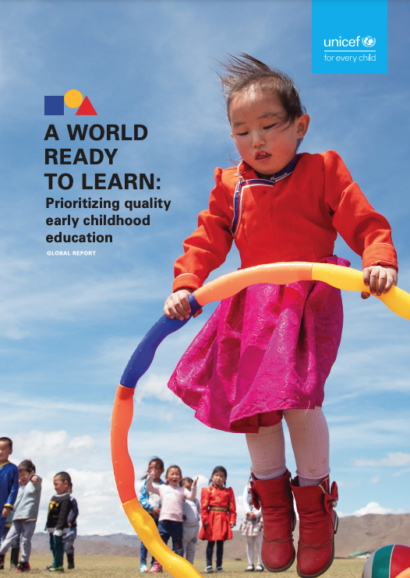 Read more about UNICEF (2019) A world ready to learn: Prioritizing quality early childhood education
Read more about UNICEF (2019) A world ready to learn: Prioritizing quality early childhood education
UNICEF (2019) A world ready to learn: Prioritizing quality early childhood education
This global report on pre-primary education focusing on age 3 to 6 highlights data-driven recommendations for governments and development actors to ensure children build the foundations and develop skills they need to succeed in school and later in life.
OHCHR (2020) Policy Guidelines for Inclusive Sustainable Development Goals: Quality Education
Provides detailed guidance for policymakers on measures that are required to implement the Sustainable Development Goal 4 (SDG 4) on Quality Education which ensure the inclusion of persons with disabilities.
International Labour Organization (2008) Recognizing ability: The skills and productivity of persons with disabilities: Literature review
This paper reviews evidence regarding the impact of policies and practices designed to support persons with disabilities in the achievement of their productivity potential in the formal and informal economies through skills training and workplace accommodations.
International Labour Organization (2017) Including persons with disabilities in technical and vocational education and training: A guide for administrators and instructors to disability inclusion
A guideline on disability inclusive technical and vocational education and training based on pilot programs in Bangladesh.
GIZ (2020) Guideline on how to mainstream inclusion of marginalised people in vocational education and training
This resource on holistic inclusive vocational and educational training has been developed by GIZ. This includes guidance around broad inclusion, of which disability inclusion is one area of focus.
UNICEF (2021) Mapping of Disability-Inclusive Education Practices in South Asia
This regional mapping report and its country profiles across South Asia highlights the main gaps and challenges of education practices, across six areas.
Various (2017) Strengthening Inclusive Education in Fiji – Lessons Learned from AQEP: Changing attitudes about disability
This policy brief discusses attitudinal barriers in children with disabilities in accessing education.
Monash University (2016) Pacific Indicators for Inclusive Education (Pacific-INDIE): Case Studies
There are four case studies presented from Fiji, Vanuatu, Samoa and Solomon Islands, the four key countries involved in the development of the Pacific INDIE final set of indicators.
CBM Australia (2023) Supporting Children with Disabilities in the Philippines
CBM Australia supported NORFIL Foundation to implement the Enable Communities for Inclusion of Children and Youth with Disabilities project from 2020 to 2022.
Chata Male & Quentin T. Wodon (2017) Disability gaps in educational attainment and literacy (English)
This note provides an analysis of gaps in educational opportunities for children with disabilities.
DFAT (2019) Disability Inclusive Education: Practitioner Level course
This module is designed to inform those who engage with and lead policy dialogue with international and domestic partners of diverse implementation strategies and key priorities in disability-inclusive education.
UNESCO (2020) Global Education Monitoring Report 2020, Inclusion in education: All means ALL
This report is pivotal in highlighting the inequalities in educational opportunities and barriers, which have been compounded by COVID-19.
World Bank (2019). Every learner matters: Unpacking the Learning Crisis for Children With Disabilities
This report prepared by the World Bank, establishes the learning crisis for children with disabilities and presents evidence of how and why children with disabilities are being left behind, and the need to shift from school access to prioritizing learning.
IDA (2020). “What an inclusive, equitable, quality education means to us”. IDA Report on Inclusive Education Launched
The IDA Global Report aims to inform education sector stakeholders on the priorities agreed by the disability rights movement, and to equip disability activists and their allies with essential messages and recommendations to unify and strengthen advocacy towards effective and accelerated reforms of the education sector.
World Bank Group (2019). Equity and Inclusion in Education in World Bank Projects: Persons with Disabilities, Indigenous Peoples, and Sexual and Gender Minorities.
This paper focuses on three groups who experience deeply entrenched disadvantages, inequity, exclusion, and discrimination in education.

